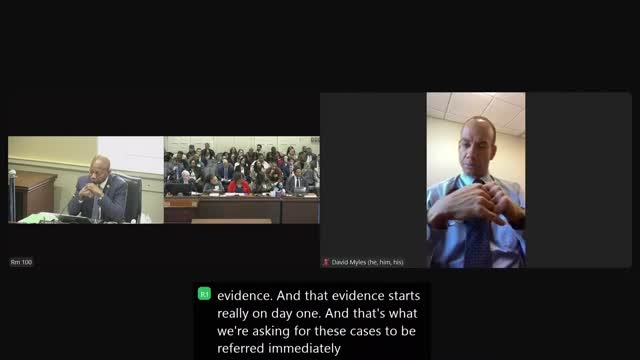Advocates push to reclassify audio-only recordings by victims from felony to misdemeanor
Get AI-powered insights, summaries, and transcripts
Subscribe
Summary
House Bill 130 would change Maryland—s law that currently makes certain private audio recordings a felony to a misdemeanor, leaving two-party consent intact but reducing collateral exposure for victims who record assaults or sexual crimes. Supporters said the felony classification deterred victims from sharing strong evidence with prosecutors.
House Bill 130 would reclassify the criminal prohibition on certain unauthorized audio recordings of private conversations so those offenses would be misdemeanors instead of felonies. The bill, which preserves two-party-consent requirements, aims to reduce lifetime collateral consequences for victims who document crimes against them by audio on a phone or security device.
Supporters included domestic-violence service organizations, crime-victim advocates and a number of prosecutors. They said people who document their own assaults or rapes often hold the best evidence, but current felony exposure has deterred victims from telling law enforcement or prosecutors about recordings. The Maryland Coalition Against Sexual Assault, the Maryland Network Against Domestic Violence, and several state's attorneys endorsed the change.
Maryland's Public Defender's Office and civil-liberties groups advocated for careful preservation of consent protections; public defenders emphasized that this change should not remove protections against secret recordings generally but that the felony classification has had an outsized lifelong impact on those who recorded crimes against them.
Prosecutors said a practical problem is that many victims will not report a recording exists because it could create felony exposure; reclassification would let prosecutors receive and evaluate evidence without threatening victims with felony charges. Supporters also noted that courts already admit video recordings and that removing felony exposure for audio would align audio and visual evidence practice.
Committee members asked about the relationship between this bill and other proposals under consideration in the session, including broader privacy reforms. No vote was taken at the hearing.
